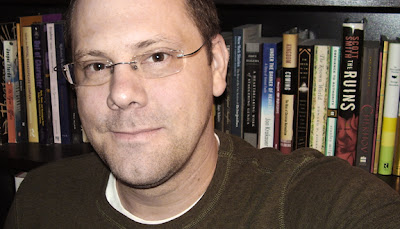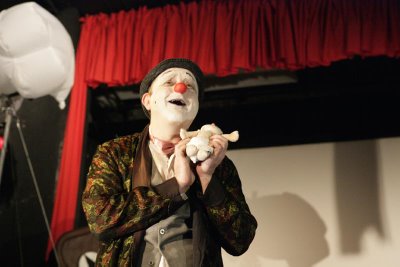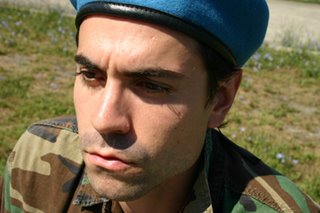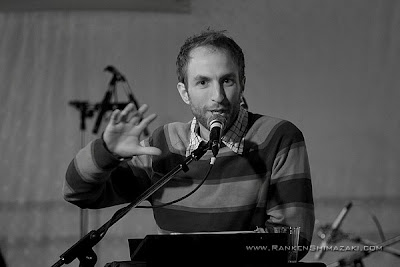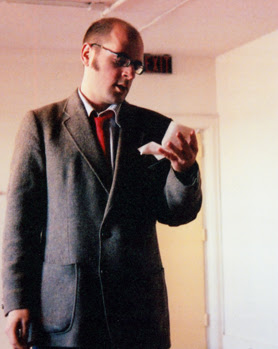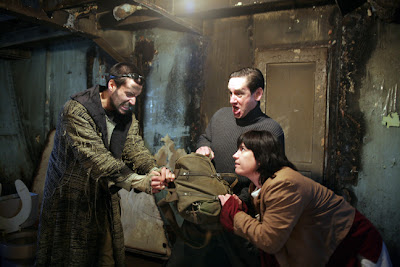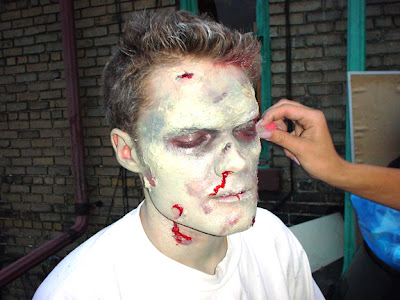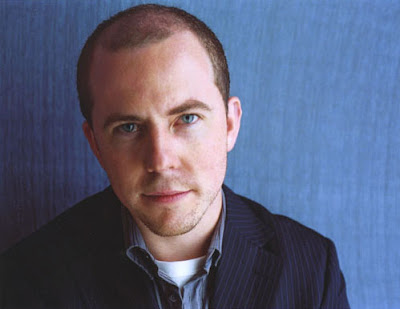1) Do you have any unifying theories about the artist-critic relationship?
They are both in league against the idiot public and every form of authority – pope, president, CEO. They just don’t know it.
2) Do you have any unifying theories when it comes to acting?
I think good stage-acting is more like good film-acting than people want to think, especially in smaller venues. Also, when you play a role I think you should use as much of yourself as possible, because you’ve had your whole life to work on the character and it’s probably going to be more interesting than a limp or a stutter. Unless you already do those things; then by all means, incorporate them.
3) Do you have any unifying theories when it comes to comedy?
I also do sketch and improv so I have seen things that can work across those types of comedy too. Two things stand out for me:
1. Be specific with detail.
2. Surprise with the obvious response.
Detail makes a scene more real to people and gets their imagination involved. People’s imaginations are funnier than you are. A really good example of this was in the movie The Aristocrats. The movie is all about a single joke. When George Carlin tells it he sets the bar with funny because he gets into such detail that you can see, smell and taste what he is talking about even though you would rather not.
Using the obvious response works well in improv and clown as you are often put on the spot to react to something that you did not expect. If you respond with the most obvious thing that character would do it makes people laugh. Sometimes they laugh because they expected and wanted the character to do that and sometimes they laugh because they did not think of it themselves but in retrospect it was obvious that that’s what the character would actually do.
4) Do you have any unifying theories when it comes to acting?
I don’t mind talking about or trying to theoretically analyze acting on my own time, but it’s way more efficient when you’re actually doing it. Amid a rehearsal process or when a film is in production, ‘theorizing’ as opposed to ‘doing’ will impede the project. In a theatre school, it’s dangerous for students to pay too much mind on theory of ‘how to act’ because when they finally get down to playing a role, their minds will be fixated on recollecting what Stanislavsky or Hagen said instead of practicing being alive in a moment. Acting is an emotional sport that needs to be practiced at all times and acknowledging your life experiences.
5) Do you have any unifying theories when it comes to art?
It’s political whether you like it or not – either you choose to challenge the status quo or you support it.
6) You’ve written a lot about theatre, do you have any unifying theories that have risen to the top?
Right now, “curiosity” is a key word. As long as curiosity is there I think we have a chance. Also curiously doesn’t demand a specific style, which is good, since everyone making the same work would be very boring. Also a dedication to the “same time, same place” features of live performance – that we share time and space with our audience. This, in these times of mediation, seems remarkable and perhaps a trait we should focus on and articulate.
7) Do you have any unifying theories about performance?
No. The time of the great “isms” has passed. The great 20th century art movements. The only thing that unifies performance activities is political repression, and we don’t have enough of that in our soft society. Not overtly, anyway. It’s still about the actor and the audience in real time, I guess. New media and digital experimentation – well, we’ll see. Maybe we’re in the middle of a revolution. It’s hard to know when you’re in the middle of it.
8) Do you have any unifying theories about the role of formal education in shaping theatre artists?
The key word in that question, in my opinion, is “artists.” Most theatre educators, unfortunately, aren’t trying to create artists, they’re trying to create replacement parts for the current creaking theatre machine, which, as my answer to question #1 implies, is about as responsible as teaching kids how to do punchcard data entry as a means of getting a high-paying job.
Have you ever noticed that all the ads for theatre programs in American Theatre magazine brag about “training”? Training? Dogs are trained, not artists. But that should give you a clue that most theatre education is about obedience, not artistry. What’s my unifying theory? See the answer to question #3.
9) Do you have any unifying theories that inform your approach to directing theatre?
Always go into rehearsal with lots of ideas and be prepared to throw them all in the trash within five minutes. Try not to work too directly towards the outcome that you desire, in fact don’t be afraid to work far off in a different direction, before slowly making your way back towards your original idea. Always be highly suspicious of something that comes very quickly and easily in rehearsal. If it seems too good to be true, it probably is.
10) Do you have any unifying theories when it comes to directing?
It’s good not to blow all your screaming at the beginning of rehearsals. That way you still have some fury left in the bank come dress/tech day.
In real life, though – just this: Listen. There are so many forms of creation that are strong due to a single artist’s voice or vision. Theatre ain’t one of them. When I direct, I look at my role as being a co-creator, an outside eye, and a facilitator.
